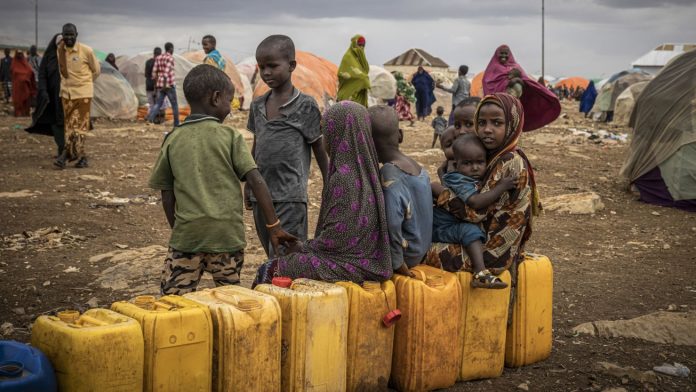Growing global water scarcity is fuelling new conflicts warns the United Nations in a new report that says access to clean water is critical to building peace.
The UN’s World Water Development Report 2024 was released Friday, which reports that 2.2 billion people worldwide lack access to clean drinking water and 3.5 billion people lack access to safe sanitation.
Girls and women are the first victims of water scarcity, says the report published by the UN Educational, Scientific and Cultural Organisation (UNESCO), especially in rural areas where they have the primary responsibility for collecting supplies.
Spending several hours a day fetching water, combined with a lack of safe sanitation, is one of the factors contributing to girls dropping out of school. UNESCO chief Audrey Azoulay said:
Water shortages not only fan the flames of geopolitical tensions but also pose a threat to fundamental rights as a whole, for example, by considerably undermining the position of girls and women
UN agencies have long warned that not only are children and women at serious risk of thirst and hunger, but lack of clean water disrupts health care and hygiene.
Water insecurity leads to migration, and displaced people deplete resources in the places where they settle. The report cites a study in Somalia that showed a 200 per cent increase in gender-based violence against a group of displaced people.
At least 10 per cent of global migration is linked to water scarcity as the world’s climate becomes increasingly unstable, the researchers claimed. The report also said:
Global warming is projected to … further increase the frequency and severity of droughts and floods, with more wet and very dry weather and climate events.
The report, entitled “Water for Prosperity and Peace”, shows that about half of the world’s population is severely water-stressed, with some areas experiencing water shortages almost year-round.
The effects of this are largely felt in poorer countries, which find it more difficult to adapt. The report estimates that it would cost $114 billion a year to provide safe drinking water, sanitation and hygiene in 140 low- and middle-income countries.
